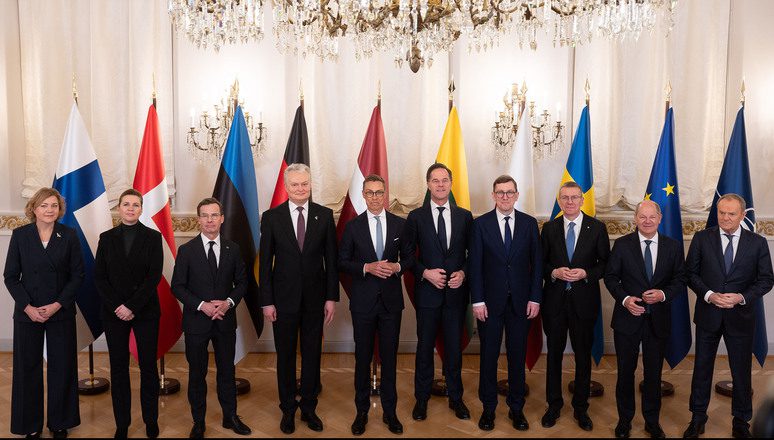NATO Secretary General Mark Rutte hosted the Baltic Sea Summit together with Finnish President Alexander Stubb and Estonian Prime Minister Kristen Michal.
At a meeting in Helsinki, Rutte announced the launch of a new NATO military activity aimed at strengthening the protection of critical infrastructure. Baltic Sentry will strengthen NATO's military presence in the Baltic Sea and improve the Allies' ability to respond to destabilising acts.
At the summit, leaders from across the region addressed the growing threats to critical undersea infrastructure. The Secretary-General said that recent sabotage has damaged power and communications cables, but he is confident that "working with all allies - we will do whatever it takes to ensure the safety and security of not only our critical infrastructure, but everything we hold dear."
Baltic Sentry will include a range of assets, including frigates and maritime patrol aircraft. The Secretary General also announced the deployment of new technologies, including a small fleet of maritime drones, and stressed that NATO will work with allies to integrate national surveillance assets - all with the aim of improving the ability to protect critical undersea infrastructure and respond when needed. NATO will work within the Critical Undersea Infrastructure Network, which includes industry, to explore additional ways to protect infrastructure and improve the resilience of undersea assets.
Rutte also stressed the importance of consistent law enforcement. He highlighted how Finland has shown that it is possible to take decisive action within the law: "Ship captains need to understand that any compromise of our infrastructure will have consequences, including possible boarding, seizure and arrest."
For more information about Baltic Sentry, please see in the press release Supreme Headquarters Allied Powers Europe (SHAPE).
Allies attending the summit signed a joint statement, the text of which is available at here.
NATO/ gnews.cz - RoZ



